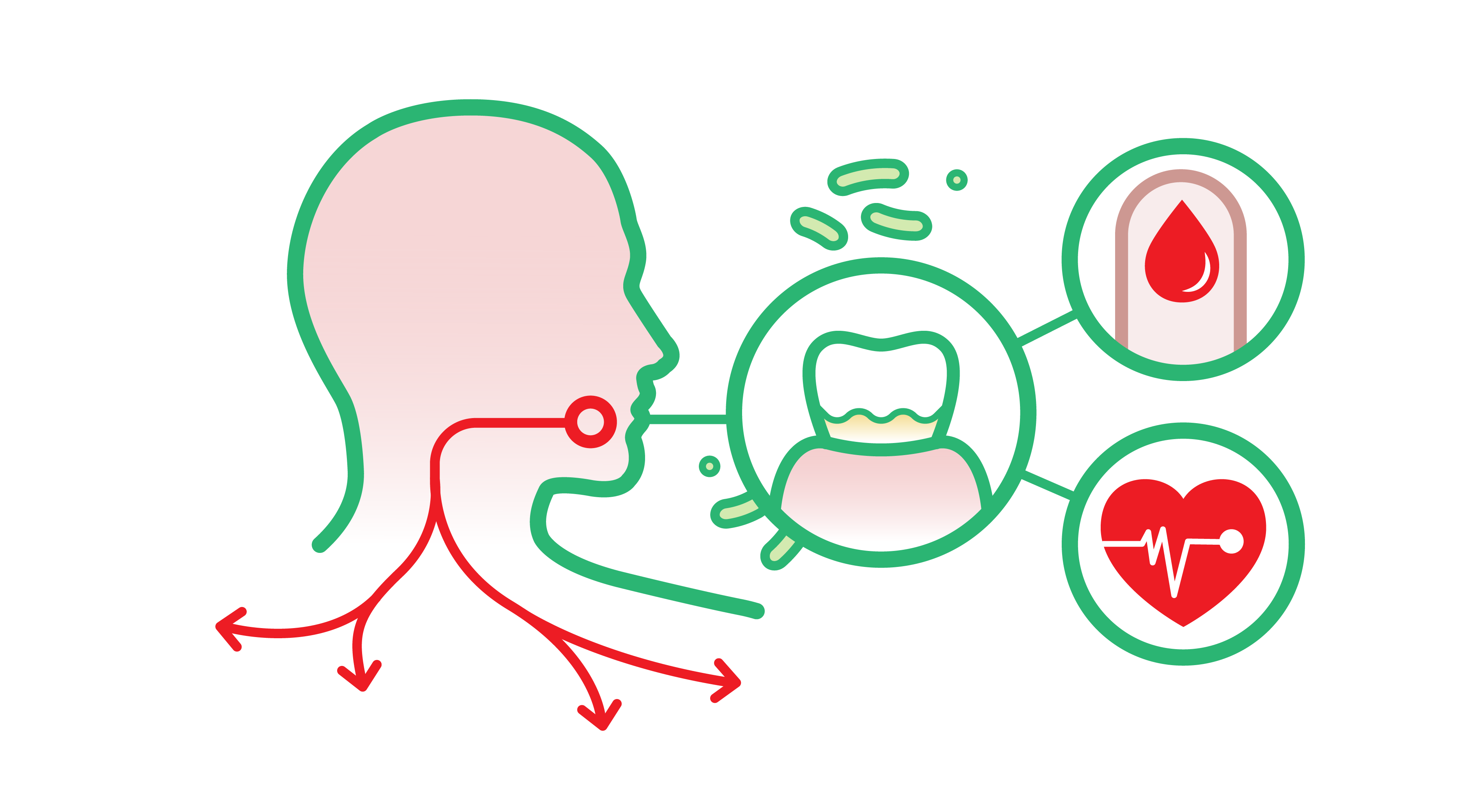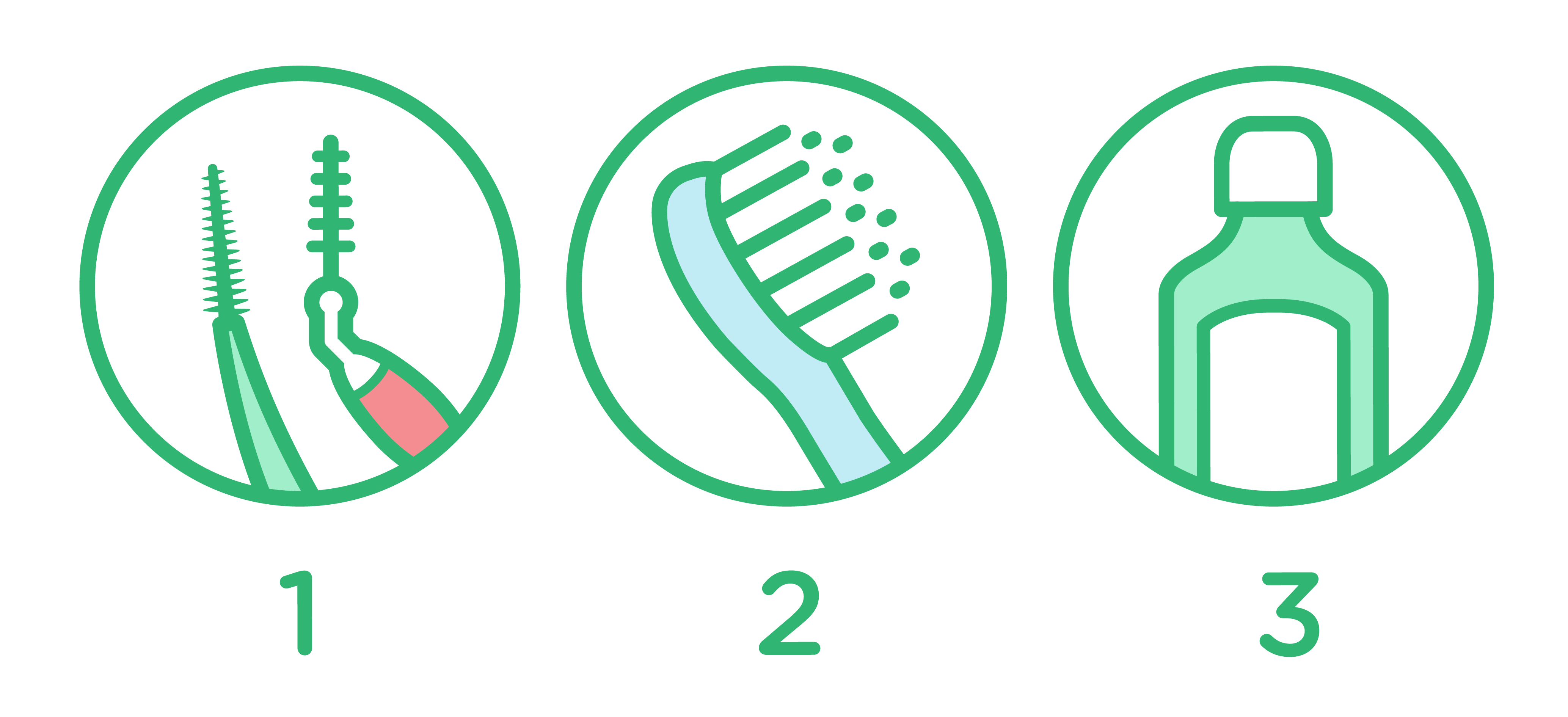
What Is Diabetes and Why Does it Matter for Oral Health?
Diabetes isn’t a mystery condition. If you’re not one of the 60 million Europeans who suffer from diabetes [1], you likely know someone who does.

Roughly 1 in 11 adults worldwide [2] live with a form of diabetes. Even more have a condition called “prediabetes,” which means they’re high-risk for developing Type 2 diabetes.
Diabetes is a condition that affects the way the body processes glucose (blood sugar). The condition makes it much more difficult to manage glucose levels and the body becomes resistant to producing insulin, the hormone responsible for promoting glucose absorption. As a result, individuals with diabetes are prone to high blood sugar levels, which is dangerous. High blood sugar leads to heart and kidney diseases, as well as vision loss and a host of other preventable problems. It’s why diabetes sufferers need to monitor their blood sugar levels.
Fortunately, Type 2 diabetes is manageable; however, those living with it still need to understand how it can affect their health in unseen ways. Oral health is a great example.
How does diabetes affect oral health?
Diabetes sufferers should consider total body health while managing their blood sugar. If their blood sugar is too high, it can increase the risk of long-term problems like those mentioned above. Too low and they risk a crash. Either way, the whole body is at risk.
Diabetes and dental care are both parts of total body health, and diabetes sufferers ought to be aware of what can happen inside their mouths when blood sugar levels are too high. Some of the common oral conditions associated with diabetes include:
- Excessive cavities and rapid tooth decay
- Ulcers and hotspots that take a long time to heal
- Thrush, a type of painful oral infection
- Gingivitis and receding gum leading to periodontitis
- Gum diseases
We all know that sugar is the biggest enemy of teeth and oral health, especially for cavities and gum disease, otherwise known as periodontal disease. For people with diabetes, this goes beyond avoiding candy and soft drinks - it means controlling blood glucose levels!
The biggest thing to remember about the relationship between diabetes and dental health is that it’s bi-directional: they affect each other. High blood sugar can eventually result in periodontitis (gum disease), which has corresponding effects for the rest of the body - it’s been linked to everything from respiratory disease, to rheumatoid arthritis, to coronary artery disease [3]. It can affect the eyes, nerves, kidneys, and heart. And reversely, periodontitis can affect the regulation of the blood sugar level.

The snowballing effects of poor glycaemic control
As mentioned, diabetes is a manageable condition. Unfortunately, it’s also easy to mismanage if you’re not careful! Overindulging on sugary foods or not getting proper exercise can result in over-saturation of blood glucose. Aside from making you feel unwell, that excess sugar in your bloodstream can immediately start to take its toll on the body, including teeth and gums.
Gingivitis is the simplest form of gum disease: inflammation of the gums. It’s not only preventable with good oral health habits, it’s also reversible. For diabetics, excess blood sugar causes gingivitis to develop quickly. Sensitive, bleeding or reddened gums are one of the first clear signs of poor glycaemic control of gingivitis.
Gingivitis will only get worse if it’s not caught and managed early. Because diabetics have more difficulty healing, inflamed gum tissue becomes prone to recession and deterioration, which leads to periodontitis.
Diabetes and periodontitis are a troubling combination
People living with diabetes are 1.5-3 times more likely to suffer from periodontitis. This also means they’re more at risk for developing complications of periodontitis, made worse by diabetes. In a nutshell, periodontitis and diabetes together can be a recipe for major health complications.
As an example, diabetics are more likely to suffer from heart disease [4] as a result of prolonged high blood sugar. Heart disease is also connected to periodontitis [5]. This means that a person with both diabetes and periodontitis is at significantly higher risk for heart disease than someone without one or either of those underlying conditions. It underscores the importance of maintaining good glycaemic control and good oral hygiene.
This bi-directional relationship between diabetes and periodontitis extends to a host of other conditions, as well. The good news is, controlling blood sugar levels and oral hygiene is the best way to immediately reduce risk. Keeping diabetes under control means preventing periodontitis, which means dramatically reducing the risk of other health complications.
How to keep your diabetes (and periodontitis) in check
Studies show that good glycaemic control is a central tenet in managing diabetes and other health conditions that result from it, like periodontitis. That means checking blood sugar levels throughout the day and working to keep them within acceptable levels. Other management tips include:
- Exercise often to promote healthy weight and blood sugar levels
- Control carb intake and increase dietary fiber intake
- Drink plenty of water and stay hydrated throughout the day
- Control stress levels and get a good night’s sleep each night
Good oral health habits also play a factor. Avoiding sugary foods and soft drinks, and engaging in regular brushing and interdental cleaning, will protect your teeth and gums from bacteria buildups caused by excess and help to control your blood sugar. A good oral care regimen - and having regular check-ups at the dental office - promotes healthy gums and reduces opportunities for gingivitis and periodontitis to form.
A recent study even shows that good brushing every day can reduce the risk of developing diabetes by up to 8% [6].
A little brushing and interdental cleaning goes a long way! In addition to preventing periodontitis, proper oral care will reduce dental costs, which can be higher among diabetics. And, of course, preventing periodontitis can also mean lowering your risk of other health conditions, which come with their own medical costs.
Take advantage of oral care products that can help
When it comes right down to it, oral health empowers diabetes management. Once you understand the relationship between diabetes and a condition like periodontitis, and how they both affect the whole body, oral care makes sense as the best and easiest way to contribute to support your teeth and keep diabetes in check. The right brush, toothpaste and rinse - along with floss and interdental care products - with the right technique gives you everything you need to care for your oral health at home. Together with good glycaemic control and diabetes management, it’s a recipe for better total body health.
















